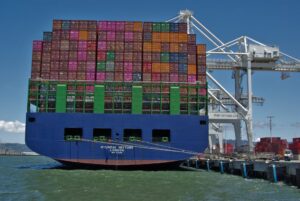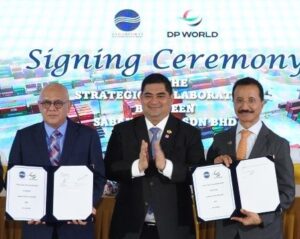Lloyd’s Register Maritime Decarbonisation Hub (LR) has launched ‘The Silk Alliance’ project to develop a Green Corridor Cluster beginning with intra-Asia container trade.
LR will work with 11 cross-supply chain stakeholders to develop a fleet fuel transition strategy for containerships operating primarily in Asia.
The alliance will call upon fuel providers, port operators, and governments to support the initiative.
Ultimately, the collaboration aims to speed the maritime industry’s COP26 commitments and to present a strategy that can lower the investment risk that is currently preventing the wider uptake of sustainable carbon-neutral fuels.
“This is a first-of-its-kind in developing fleet transition strategies for multiple stakeholders, not just with the support of major players within the maritime industry, but also with operators in other industries that serve the maritime supply network – the shipowners, shipyard managers, financial institutions, bunker suppliers, and engine manufacturers,” said Charles Haskell, Lloyd’s Register’s Decarbonisation Programme Manager.
The new Silk Alliance, named after the Silk Road, brings together shipowners, such as Mediterranean Shipping Co (MSC), Pacific International Lines (PIL), Wan Hai Lines, X-Press Feeders, Yang Ming Marine Transport Corp; shipyard, Keppel Offshore & Marine; bunker logistical supplier, Singfar International; engine manufacturer, Wärtsilä; shipmanager, Wilhelmsen Ship Management; and financial institutions, the Asian Development Bank and ING.
Green corridors initiatives are on the rise as the industry works towards a highly anticipated net-zero target.









